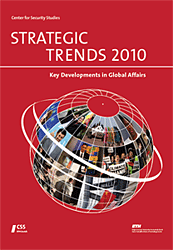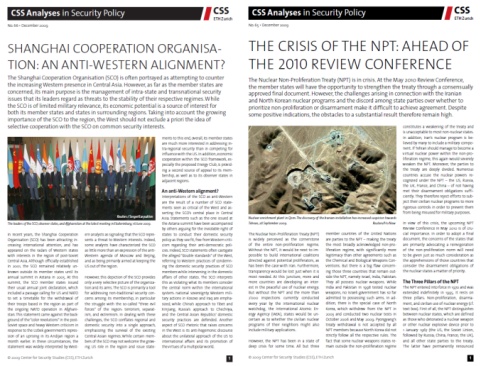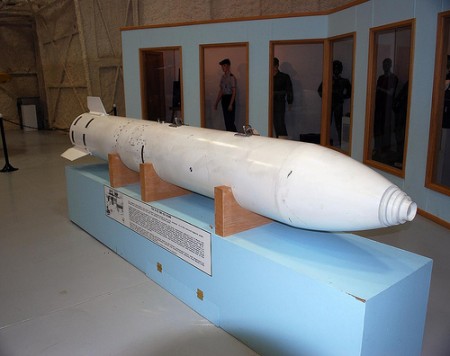
The Center for Security Studies (CSS) has released the inaugural publication, Strategic Trends 2010. Offering a concise annual analysis of major developments in world affairs, Strategic Trends’ primary focus is international security.
Along with the publication, the CSS has also launched the website Strategic Trends Analysis, where you will find both Strategic Trends and the complementary policy brief series CSS Analysis in Security Policy. The website also features graphics, audio and video podcasts, and a discussion forum on current security issues. You can also sign up for the Strategic Trends newsletter to learn about new publications.
Last year was noted as a year of crisis by our in-house policy experts, but 2010 remains a highly uncertain period for recovery. This is not only relates to economics, but broader security threats.
Geoeconomic shifts eastward, energy security, nuclear proliferation, a crisis of political conflict management, and US approaches toward South Asia and the Middle East will be most critical challenges hitting international headlines in 2010.
Sitting at the heart of these policy dilemmas remains a lack of effective global governance. We were presented with formidable challenges in 2009. This year, novel ideas have either been lacking or proven politically impossible to implement. With power gradually shifting from the West to the East, finding effective solutions to global governance questions will become ever more complex.


